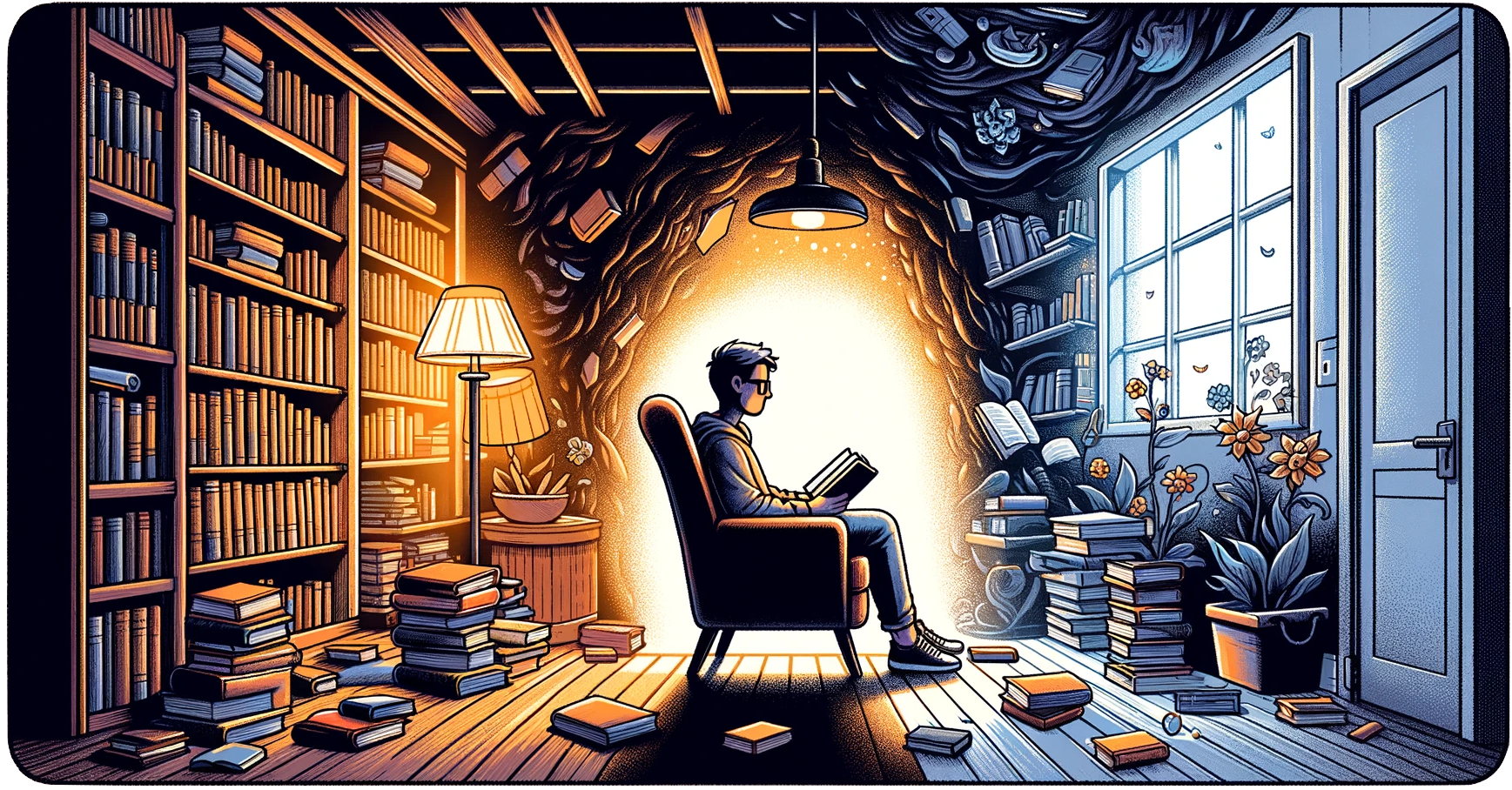#2: Embracing the 'I': My Journey from Skeptic to Advocate of First-Person Narratives
Let's get this out there: I once had a bias against first-person novels. Why on earth would I want to read a whole book stuck in someone else's head, listening to their incessant 'I did this, I felt that'? It's as if the literary world forgot there are other ways to tell a story. They certainly don’t do this in movies. They hardly ever strap a camera onto the protagonist's face for two straight hours — except for that one time with 'Hardcore Henry,' but that's a whole other can of worms. So why should I, a self-respecting reader, subject myself to this narrative tyranny? Every time I picked up a book and saw that solitary 'I' staring back at me, it was an instant no-go.
For years, this bias influenced my choices. A quick glance at a book; if I spotted an unquoted "I," back on the shelf it went, where it belonged. But in 2019, Haruki Murakami’s "South of the Border, West of the Sun" transformed my perspective. As I delved into Hajime's world, I realized that the power of first-person narrative lies in its mimicry of real-life storytelling. Suddenly, the 'I' in the novels felt like a friend sharing their story, and my aversion turned into appreciation.
This newfound appreciation, however, now presents me with a creative challenge. My previous novels, "Contraception" and "A Viral State," were written in third person. How do I, as a writer, distinguish my own voice from a first-person narrator? I ponder Melvin Burgess’s approach in "Junk," with its jarring shift of narrators, each chapter told from a different character’s perspective. Should I maintain a single, consistent voice, or should I juggle multiple perspectives? It’s a conundrum I’m still unraveling.
Reflecting on this shift in perspective, I've come to appreciate the unique intimacy first-person narratives offer. Unlike the detached observation of third-person, first-person writing invites readers into the inner world of the character. It's a space where thoughts and feelings are not merely observed, but lived. This intimacy creates a bond between the reader and the narrator, one that's akin to a personal conversation. It's a journey into someone else's psyche, where every joy and sorrow is felt firsthand. This realization has not only expanded my reading repertoire but also opened new avenues in my own writing. It challenges me to step into the shoes of my characters, to see the world through their eyes, and most importantly, to convey their stories with authenticity and depth.
There's a deeper reason why first-person narratives can be so captivating. Psychological studies suggest that when we read in the first person, our brains often process the experiences as if they were our own. This phenomenon, known as 'experience-taking,' can be incredibly powerful. When we read "I felt heartbroken," or "I rejoiced," we may not just understand these emotions; we may feel them. This vicarious experience can forge a deep, empathetic connection between the reader and the character. It's akin to walking a mile in someone else's shoes, but through the pages of a book. This aspect of first-person narrative doesn’t just tell a story; it invites us to live it, breathe it, and feel it. In embracing this style, I’ve come to realize the immense potential it holds for creating empathy and understanding, something the world sorely needs. Such narratives aren't just stories; they're bridges connecting us to diverse experiences and perspectives, helping us to understand others and ourselves on a much deeper level.
Think my take on first-person narratives is dumb? Wait till you hear this. As a kid, I was baffled by money. Watching my mom hand over $10 to a cashier and get back only $2 and an item seemed like a raw deal. My young mind couldn't grasp the concept of 'value' or 'cost.' I constantly thought we were getting ripped off. Compared to that, my views on narrative styles might not seem so outlandish now, eh?
For those who share my former skepticism towards first-person narratives, I would recommend this: imagine the narrator as someone recounting their tale over a drink. You’re just along for the ride, experiencing their world through their eyes. It's a perspective shift that might just change your reading experience. For me, embracing first-person narratives has been like learning a new language; initially foreign, now fluent, turning my 'I don't get it' into an 'I see it now,' one story at a time.

